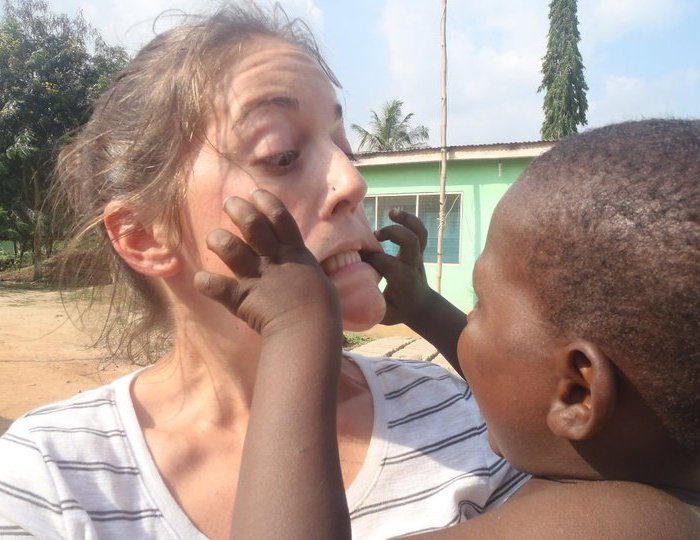“JESSIE…JESSIE…I’m coming to get you…!” I am lying in bed reading as the voice growls from outside my window.
I tighten my throat, trying to sound scared, “Who’s there? You’re scaring me!”
In reality I haven’t moved a muscle, as I know it’s just Isaac and Obeng. They love thinking they are playing a practical joke on me, and I will do anything to put smiles on their faces.
